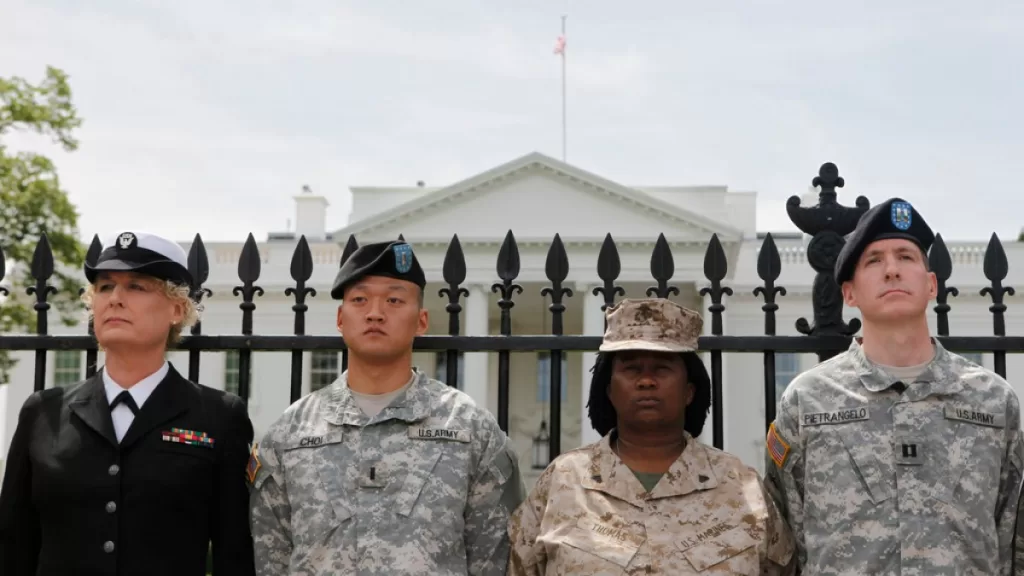Defence secretary says the step helps to ‘redress the harms’ done by the policy, which forced LGBTQ service members to hide their identities.
The United States military has upgraded the records of service members discharged under an old anti-LGBTQ policy known as “Don’t Ask, Don’t Tell” in an effort to make amends.
Defence Secretary Lloyd Austin said on Tuesday that 851 service members who lost their positions under “Don’t Ask, Don’t Tell” had their status changed to “honourable discharge”.
Those who received discharges in categories other than “honourable” often lost out on military benefits, which range from educational funds, healthcare, pensions and other forms of compensation.
“Brave LGBTQ Americans have long volunteered to serve the country that they love. Some of these troops were administratively separated from military service under the now-repealed ‘Don’t Ask, Don’t Tell’ policy,” the statement reads.
“Under President [Joe] Biden’s leadership, the Department of Defense has taken extraordinary steps to redress the harms done by ‘Don’t Ask, Don’t Tell’ and other policies on these former Service members.”
Under @POTUS‘ leadership, the Department of Defense has taken extraordinary steps to redress the harms done by “Don’t Ask, Don’t Tell” and other policies on former Service members who are LGBTQ+. Read my full statement: pic.twitter.com/3wbh8nI3pP
— Secretary of Defense Lloyd J. Austin III (@SecDef) October 15, 2024
The move is the latest effort to address the legacy of the discriminatory policy, which was issued by Democratic President Bill Clinton in 1994.
The directive allowed LGBTQ people to serve in the military so long as they kept their identities hidden. Any openly gay or bisexual people were otherwise vulnerable to expulsion.
Clinton championed “Don’t Ask, Don’t Tell” as an alternative to previous military policy, which banned homosexuality outright. The Democrat had hoped to end the ban if elected president but was unable to, as he faced stiff resistance from military leaders and members of Congress.
That ultimately led to the rise of “Don’t Ask, Don’t Tell”: Military personnel were not required to reveal their sexual orientation, nor were officials supposed to inquire.
Critics, however, pointed out that the new policy was equally discriminatory. It was ultimately repealed in 2011, allowing LGBTQ people to serve openly in the military.
However, some 13,500 service members were discharged while “Don’t Ask, Don’t Tell” was in force.
The Biden administration has attempted to address historical anti-LGBTQ discrimination in the military, even beyond “Don’t Ask, Don’t Tell”.
In June, Biden issued “unconditional pardons” to those service members convicted under the now-repealed Article 125 of the Uniform Code of Military Justice for consensual sex.
Previously, Article 125 barred sodomy and other “unnatural carnal copulation with another person of the same or opposite sex”. Thousands of people had been court-martialed under the law.
Biden’s pardon, however, helped some of those affected regain access to lost benefits.
In the case of “Don’t Ask, Don’t Tell”, the Defense Department announced that it would proactively review old records in September 2023.
“After a year of exceptional work, the Military Department Review Boards directed relief in 96.8% of the 851 cases that they proactively reviewed,” said Austin.
Not all of the 13,500 service members needed to have their records reviewed, however, since some had been honourably discharged, had not served in the military long enough to qualify for certain benefits, or were dishonourably discharged due to other reasons.
